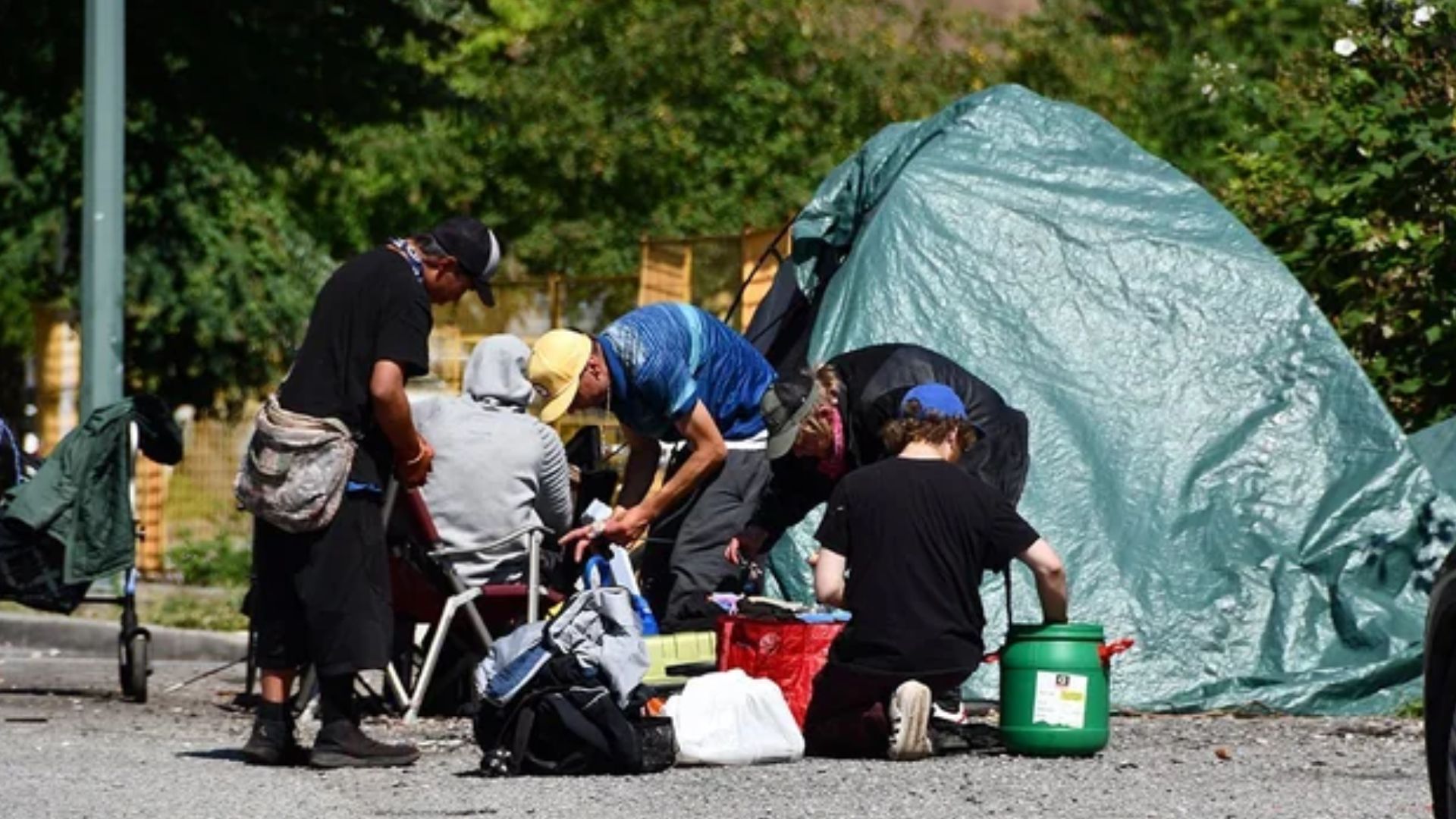Bloomington, Indiana – Bloomington has long prided itself on being a city that opens its arms to those seeking a new beginning. It’s a place known for second chances, where compassion is often the default setting. But in the face of rising homelessness and mounting concerns from residents, businesses, and city officials, that compassion is being tested—and it now calls for a more structured, balanced response.
Over the past month, the Greater Bloomington Chamber of Commerce has taken a more vocal role in the public conversation, urging both city leaders and the broader community to confront a complex truth: goodwill alone isn’t enough to solve the problem. From public safety concerns to hidden economic pressures, the consequences of inaction are becoming more difficult to ignore.
A Compassionate City Confronts Tough Realities
Homelessness isn’t new to Bloomington, but its scale and impact are evolving. Incidents like a recent arrest on the B-Line Trail and the uptick in aggressive panhandling along Kirkwood Avenue are not isolated or sensationalized. They are symptoms of a larger, systemic strain—on emergency services, outreach workers, and ordinary citizens who navigate these spaces every day.
“Our city’s compassion is part of what makes it special,” said one business owner in the downtown district. “But when that compassion becomes confusion—when safety and support get tangled—we all lose.”
According to the Chamber, the city’s service infrastructure is overstretched. Police officers, case managers, and local nonprofits are doing their best, but burnout and resource shortages are becoming all too common. Public trust, they argue, begins to erode when people feel unsafe in parks, trails, and near their places of business.
The Cautionary Tale of Crawford Apartments
Crawford Apartments was built with a mission: to provide stable housing for those who had previously lived on the streets. But good intentions don’t always translate into long-term outcomes. Without consistent supportive services—such as mental health support, addiction treatment, and daily case management—the facility has struggled.
Units have fallen into disrepair. Residents, many of whom need daily guidance, are left to navigate complex challenges without enough professional support. And the surrounding neighborhood has taken on the burden. One local business even shut its doors, citing safety concerns.
The story of Crawford underscores a key point the Chamber is making: housing is only part of the equation. Without wraparound services and accountability, progress is temporary.
The Financial Ripple Effect
While the emotional toll is visible in daily interactions and growing frustration, there’s also a silent, mounting economic burden. Since 2020, WS Property Group has spent more than $514,000 addressing issues tied to nearby encampments and disruptive behavior. This includes costs for private security, biohazard cleanup, and rising insurance premiums.
That bill doesn’t stay with large property owners—it trickles down. Tenants, many of them small businesses already grappling with inflation and workforce shortages, are now paying higher rent to absorb those costs. In some cases, that extra financial pressure is the difference between staying open or closing for good.
“These are costs that should never fall solely on the private sector,” the Chamber emphasized. “When systems fail, communities pay.”
A Call for Nuanced Action
Importantly, the Chamber is not advocating for harsh crackdowns or criminalization. On the contrary, they remain supportive of evidence-based models like Housing First and trauma-informed outreach. What they are pushing for is balance—between support and enforcement, between compassion and responsibility.
“Let’s be clear,” the Chamber stated, “we’re not calling for punitive responses. But real compassion doesn’t mean turning a blind eye to dysfunction.”
To that end, they’ve outlined a set of priorities aimed at rebuilding a functional, safe, and equitable response to homelessness:
• Outcome-driven funding for programs that show clear results in helping individuals transition into permanent, stable housing.
• Defined enforcement protocols to address repeat safety violations and trespassing, especially near commercial properties.
• Improved coordination tools that help property owners engage law enforcement and service agencies quickly and effectively.
• Regular dialogue with stakeholders—especially those in neighborhoods most affected by the current challenges.
The Mayor Weighs In
Even City Hall acknowledges the need for a new approach. Mayor Thomson recently stated, “We cannot arrest our way out of this problem.” That sentiment resonates widely. But as the Chamber noted, neither can the city solve it by ignoring the public’s growing discomfort.
The administration has publicly committed to putting “safety first,” and now the business community is asking for those words to translate into visible, meaningful change.
Building a Path Forward Together
Bloomington stands at a crossroads. It can continue to navigate this challenge with fragmented responses, or it can take the hard but necessary steps to balance heart with backbone. That balance, according to the Chamber, is what defines a truly progressive city—not surrendering to dysfunction, but facing it with courage, clarity, and collaboration.
“The Greater Bloomington Chamber of Commerce stands ready to work with our public and nonprofit partners to build that path,” they said in a closing statement.
Let this be the chapter where Bloomington chose balance. Where compassion remained strong but was anchored in structure. Where every resident—regardless of circumstance—could live with dignity, and every business could operate without fear.
And let it be remembered not as the moment when the city turned away from its values, but when it leaned into them, fully—determined to protect both its people and its promise.









